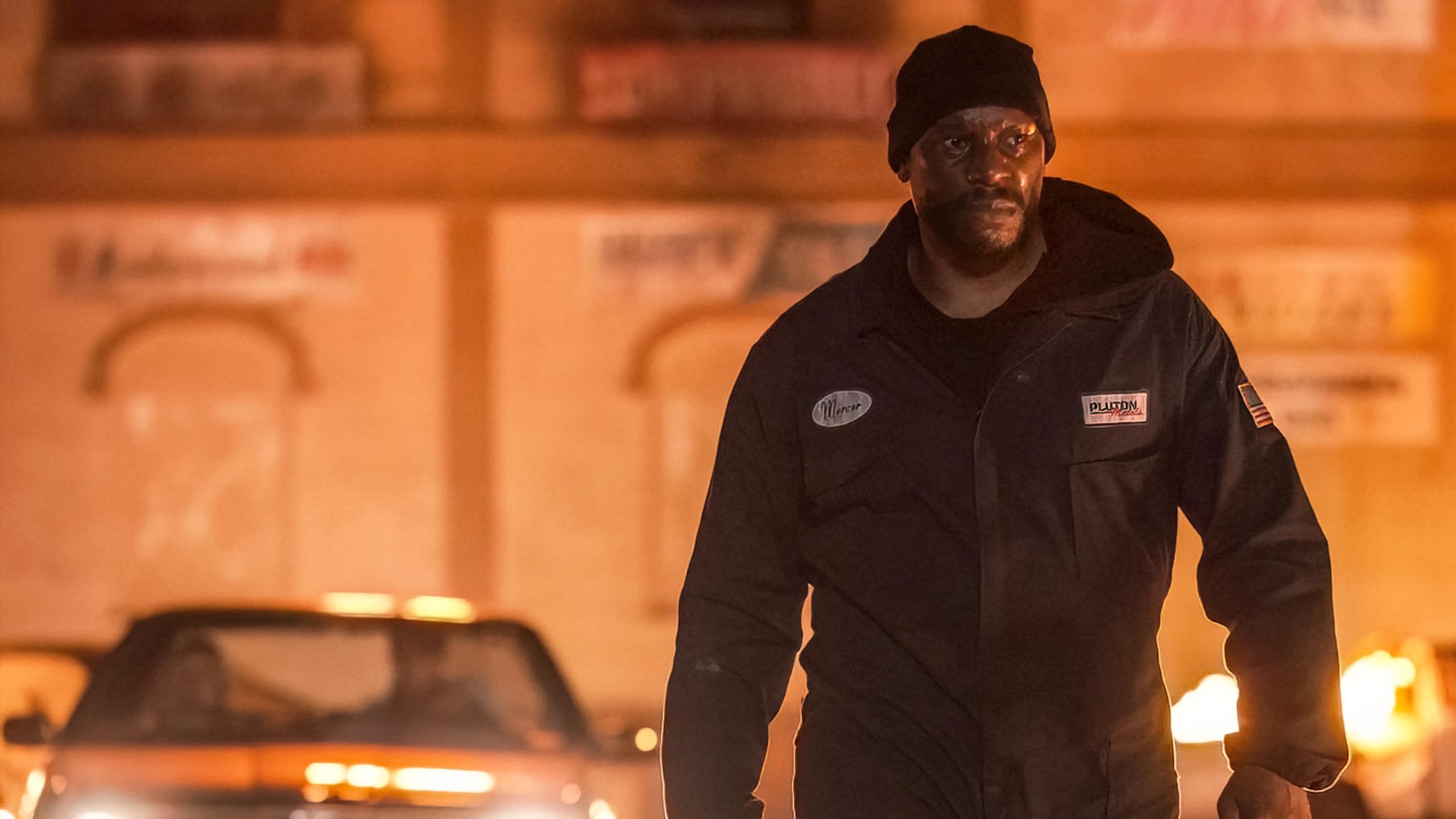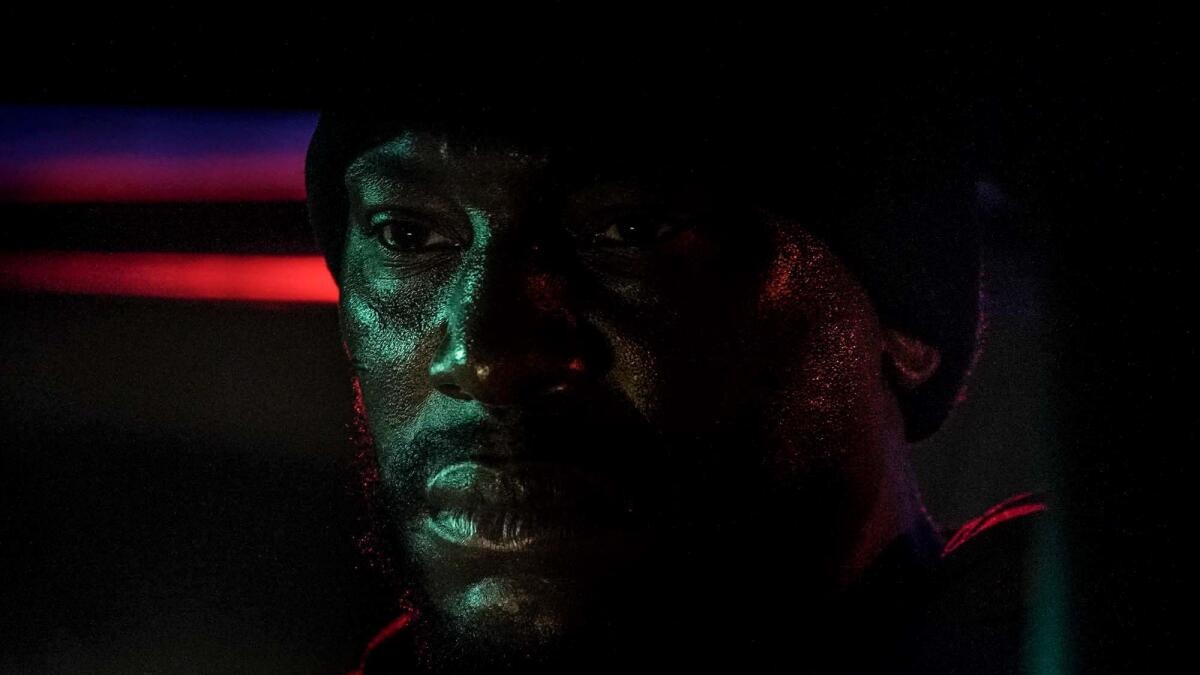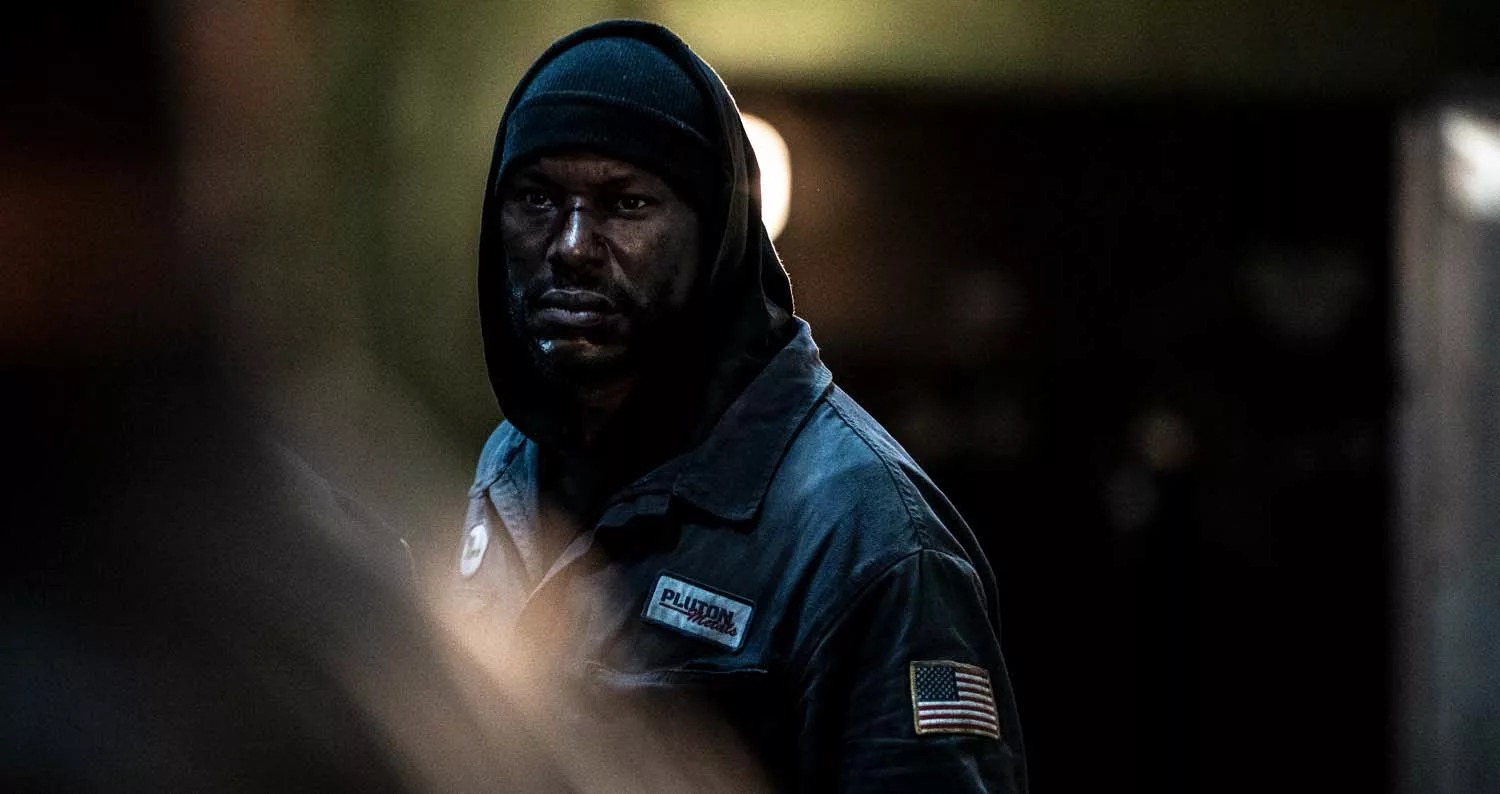Ariel Vromen’s 1992 transports audiences to a period of civil unrest following a controversial court ruling that acquitted police officers involved in the violent beating of Rodney Glen King.
The shocking incident, which took place on March 3, 1991, was caught on camera, exposing the brutal assault by officers from the Los Angeles Police Department.
Despite clear visual evidence, the jury cleared them of all charges, igniting widespread outrage, particularly within the Black community. The film presents this historical backdrop while following the story of a man caught in a dangerous predicament.

Antoine’s Anger Toward Mercer
Fresh out of prison, Mercer had been granted conditional custody of his son, Antoine, whose mother and grandmother had tragically lost their lives in an accident. Though the film does not delve into the specifics of their deaths, it becomes evident that Antoine struggled with loneliness and resented having to live with his father.
Despite Mercer’s best efforts to reconnect, Antoine harbored deep-seated resentment, believing that his father had been absent when he needed him most. His frustration boiled over in an emotional moment where he lashed out, accusing Mercer of never being there for their family.
Acknowledging his past mistakes, Mercer expressed regret and admitted that while he had made poor choices, he was determined to do better.
He saw this as a rare second chance to be a father and feared that Antoine might end up following in his footsteps. Mercer envisioned a different future for his son—one where he stayed in school and pursued a stable career.
Understanding his father’s perspective, however, was not easy for Antoine, who struggled with Mercer’s protective nature. The strict rules imposed on him felt suffocating, though they stemmed from his father’s desire to shield him from danger.
Tensions in their neighborhood were already high due to the Rodney King case, with four officers facing trial for their use of excessive force.
Aware of the potential fallout if the verdict favored the police, Mercer feared the streets would erupt in chaos. His worst fears came true when the jury acquitted three of the officers and failed to reach a verdict on the fourth.
Enraged protesters flooded the streets, damaging property and escalating the unrest. Knowing the dangers that lay ahead, Mercer sought refuge at Pluton Metals, his workplace, requesting permission from his superior, Joseph Francis, to spend the night there with his son.
Joe, a compassionate man who often lent a hand to those in need, agreed, as he was scheduled to remain at the factory overnight for security duties.
What Mercer didn’t anticipate was that a group of criminals had their sights set on the factory that very night, planning to pull off a high-stakes heist.
Lowell’s Plan
Riggin, the son of Lowell, had inside knowledge of Pluton Metals, where large amounts of platinum were secured in a heavily fortified vault. Breaking in was no simple feat—the factory’s owner had invested in an advanced security system designed to prevent unauthorized access.
The setup was so sophisticated that even government buildings, like the National Archives Museum, used similar technology.
A security mechanism ensured that any attempt to tamper with the vault triggered an alarm and automatically reinforced its defenses. Initially hesitant, Lowell dismissed Riggin’s idea, deeming it too risky.
However, when riots broke out and authorities struggled to maintain control, circumstances shifted in their favor. Sensing an opportunity despite the chaos, Lowell changed his mind and agreed to go forward with the heist.
The operation involved a team beyond just Lowell, Riggin, and Dennis. Riggin’s trusted friend, Copeland, was on board, as well as Lowell’s longtime associates, Titus and Murphy.
Tension within the group surfaced quickly, particularly between Riggin and Murphy, whose violent tendencies made him unpredictable. Riggin had always distrusted Murphy, and later events justified his concerns.
Once inside the factory, Joe attempted to intervene but was swiftly gunned down by Murphy before he had a chance to react. The thieves proceeded with their plan and successfully gained access to the vault. Though Joe had been gravely wounded, he managed to crawl to his office and trigger the alarm.
LAPD helicopters surveyed the area but, failing to detect any unusual activity, at the end left. Lowell’s crew quickly disabled the alarm, ensuring Joe wouldn’t get another chance to disrupt their operation—this time, making sure he didn’t survive.
Mercer’s Fight to Protect His Son
As events come to play, Mercer unknowingly entered the factory with Antoine, unaware that a robbery was in progress. While Antoine stepped into the bathroom, he unexpectedly encountered Dennis, who, caught off guard, held him at gunpoint and took him to his father, unsure of how to proceed.
Meanwhile, Mercer stumbled upon Joe’s lifeless body and immediately sensed that something was terribly wrong. Realizing the gravity of the situation, Mercer seized Riggin as a hostage, hoping to use him as leverage.

Initially, Lowell seemed inclined to release Antoine. However, everything changed when Murphy and Titus alerted him that Riggin had gone missing.
Suspecting Mercer’s involvement, Lowell decided to keep Antoine as a bargaining chip. Even as a captive, Riggin found himself more aligned with Mercer than his own father, warning that Lowell would never let Antoine walk free.
The strained relationship between Lowell and his sons became painfully clear. Though they followed him, both Riggin and Dennis were painfully aware that their father wouldn’t hesitate to eliminate them if necessary.
Dennis, desperate for information about his brother’s whereabouts, sought Antoine’s help, and the two bonded over their shared fear of Lowell’s wrath.
The heist had already turned deadly—Murphy, reckless as ever, had shot Joe without hesitation. His lack of restraint made him a dangerous liability.
The gang had used a forklift to prevent the vault’s security cage from activating, but when it malfunctioned and injured Copeland, Lowell coldly decided to eliminate him rather than deal with his suffering.
Realizing that negotiating was his only option, Mercer attempted to reason with Lowell. However, the situation spiraled out of control. Against all odds, Mercer, Antoine, Riggin, and Dennis managed to escape the factory.
Lowell, still determined to secure the stolen platinum, ordered his men to fire at the van they used to flee—fully aware that his own sons were inside. Dennis succumbed to his injuries, while Riggin was gravely wounded. Despite the chaos, Mercer lost control of the vehicle, crashing it in a devastating collision.
With the van overturned, Lowell finally caught up to them. Showing no remorse, he executed his own son, proving that Riggin and Dennis had been right to fear him all along. Mercer and Antoine were next.
Lowell, unwilling to leave empty-handed, aimed his gun at Mercer. Before he could pull the trigger, Antoine stepped forward and shot him dead.
The Impact on Antoine
Mercer had always dreamed of steering his son toward a better life, keeping him away from the violence and crime that had plagued his own past. However, fate had led Antoine to take another man’s life in order to protect his father.
The tragic circumstances that forced Antoine’s hand may end up reshaping his understanding of Mercer’s strictness. Witnessing firsthand the dangers his father had always warned him about might allow him to see things from a new perspective.
Perhaps this harrowing experience will strengthen the bond between father and son, closing the distance that had kept them apart for so long. Adversity has a way of breaking barriers, and this moment may be the catalyst they needed to finally rebuild their relationship.
Moving forward, Mercer and Antoine might find the fresh start they both desperately needed, creating a future free from the burdens of their past.



